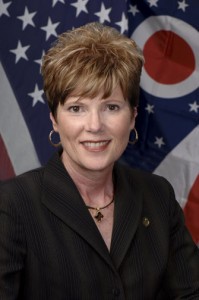 The following column was submitted by State Representative Dorothy Pelanda.
The following column was submitted by State Representative Dorothy Pelanda.
Daily news headlines about another reported case of mumps in central Ohio calls attention to the fact that Ohio is the only state in the nation that does not require immunizations for children to attend a child care center, preschool, or college.
Ohio receives about $6 million annually in federal funds through the public Health Service Act to administer its immunization program. The County Health Department is the county’s primary vaccinator, especially for low-income, uninsured or underinsured persons, and children, adolescents and adults on Medicaid.
However, under current law, parents may apply for an exemption from the recommended vaccination schedule for their children; the exemption is automatically granted. Day Care centers and schools have no idea if the children in their care have been vaccinated against highly communicable diseases such as mumps, measles, and whooping cough, because there is no vaccination requirement.
Since January, state health officials have identified more than 330 cases of mumps in 15 counties, and 66 cases of measles. Why is there the drop in immunization efforts by parents?
Some are alarmed by a report published in 1998 in a British medical journal that linked childhood vaccinations to autism. The report has been discredited, and the journal retracted the article. Nevertheless, the autism link continues to be a topic of discussion on television talk shows and in other media sources.
Due to an increasing exemption rate, unvaccinated individuals are putting our communities at risk, especially people who cannot receive vaccines due to medical reasons. Children who have not been vaccinated can be required to be kept out of school if there is an outbreak, and since the schools are required to provide a tutor for these children, this is an added expense to the school.
House Bill 536, introduced this week, requires all preschool children enrolled in a licensed child care facility to be immunized according to a schedule adopted by the ODJFS Director and recommended by the Advisory Committee of Immunization Practices of the Centers for Disease Control and Prevention.
The Bill retains two exemptions from vaccination: if the vaccination is medically contraindicated; or if the parent(s) object by reason of conscience or religion. House Bill 536 will retain the requirement under existing law of a pre-admission medical exam, but the examining medical personnel will be required to administer the immunizations.
I support this legislation as being in the best interests of all of my constituents, and sincerely hope it will improve Ohio’s vaccination rate.
State Representative Dorothy Pelanda represents the 86th House District in the Ohio House of Representatives, which includes Union and Logan counties, as well as most of Marion County. You can find more information about and contact Pelanda by clicking here.

